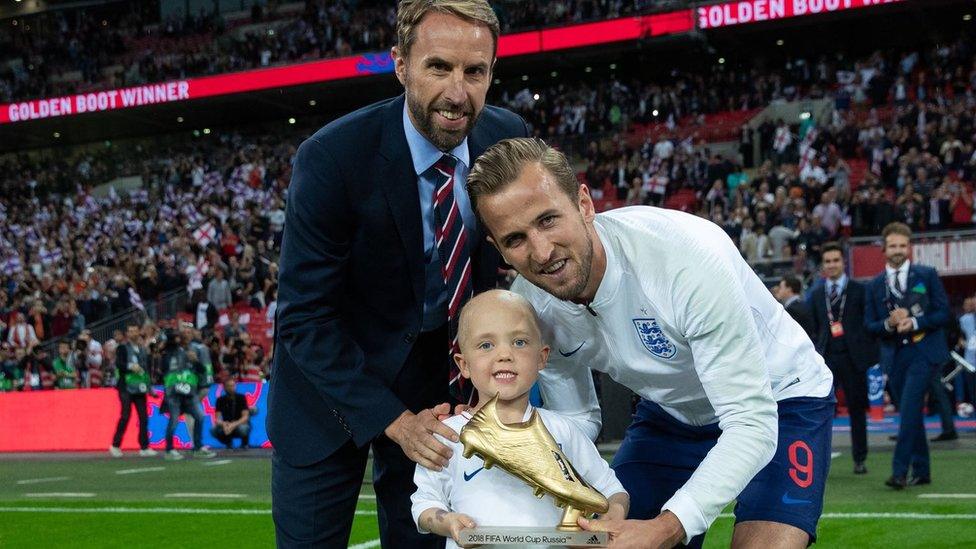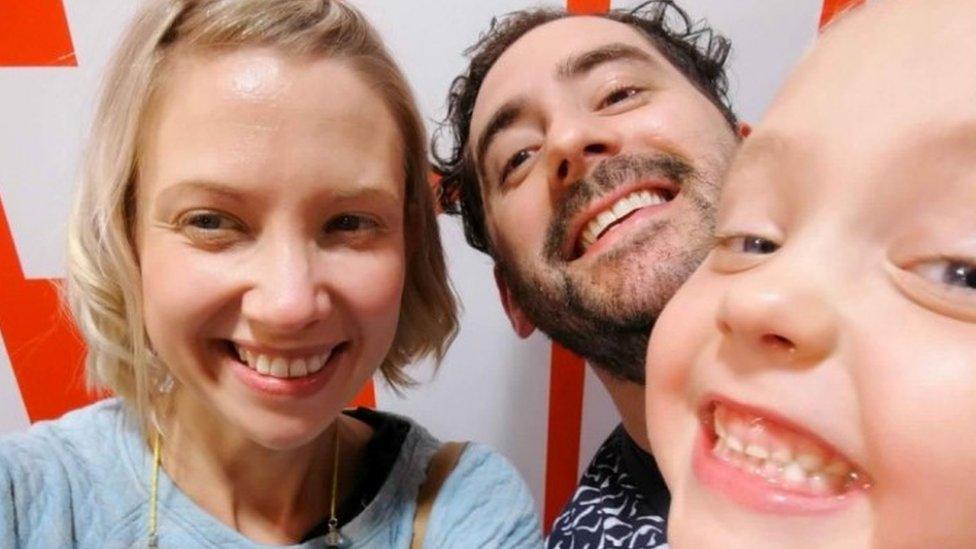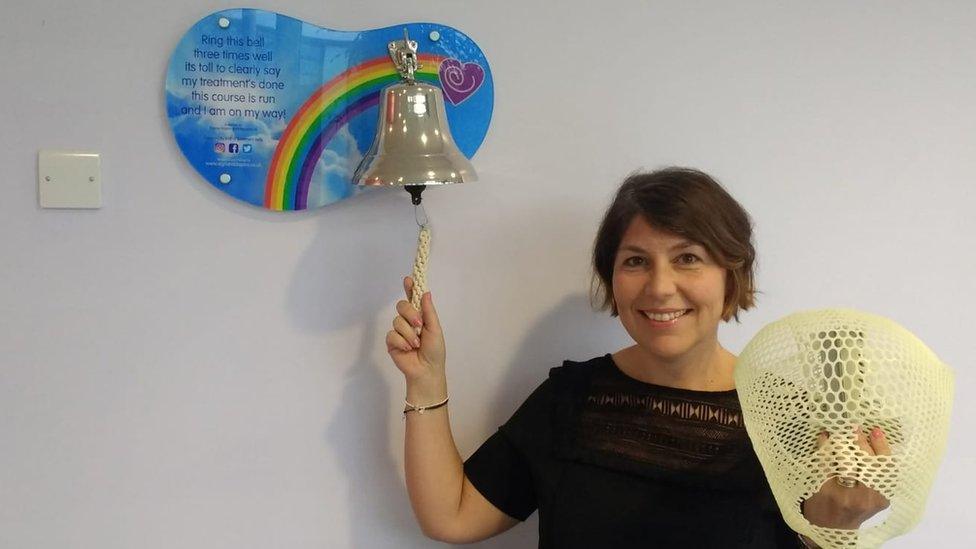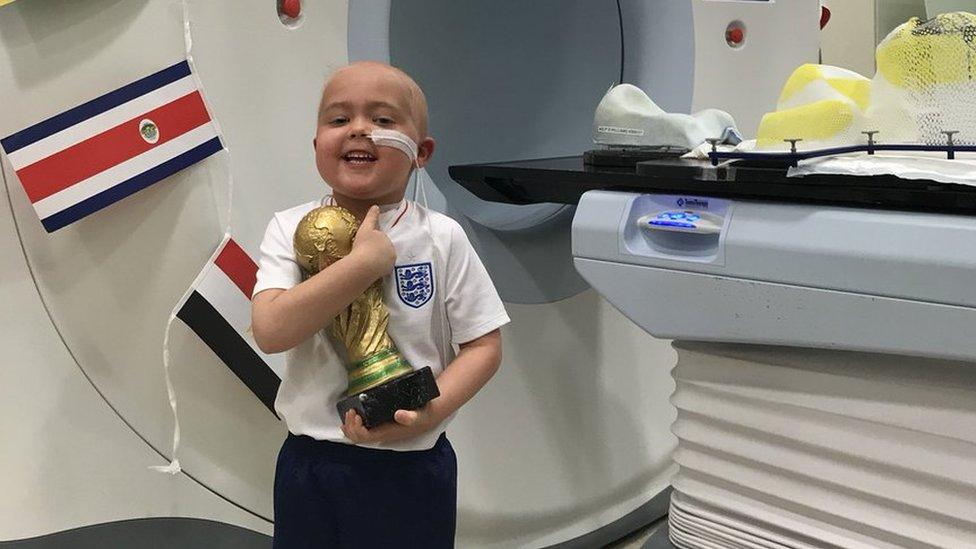Brain cancer: 'Our beautiful Ben was denied his future'
- Published

The "football-mad" six-year-old had once joined footballer Harry Kane as a mascot
Two parents who lost their son to brain cancer have called for more government funding to aid research.
Ben Williams, six, from Kings Norton, Birmingham, died in May 2019 after he was diagnosed with a brain tumour.
Just 1% of national spending is spent on brain tumours,, external yet they kill more people under 40 than any other cancer.
A Department of Health and Social Care spokesperson said funding would continue to be available to develop new treatments for brain tumours.
His mum, Jo, said "too many lives" had been lost to the "horrifying" disease.

Parents Jo and Sam said they have been "robbed" of seeing their son Ben grow up
"Ben was denied his future, a long life," she added.
"We were robbed of the joy of seeing our beautiful boy grow up because of a disease that is at the moment, ahead of the science.
"This must change."
Ben was diagnosed with the inoperable cancer in March 2018, after losing his ability to speak.
Despite receiving radiotherapy and chemotherapy treatment, he later died in May 2019.
His parents are amongst thousands who have signed a petition from the charity Brain Tumour Research, for more funding into a cure for the disease.
"With the pandemic, we have seen what can be achieved when research is prioritised and properly funded," Jo added.
"It is not acceptable that so little is spent on brain tumour research, when it has the most devastating survival rates."

Ben was diagnosed with an inoperable glioblastoma in March 2018,
Ben had been hailed as "inspiration" by England footballer Harry Kane, after he joined him as a mascot, when he received the golden boot in September 2018.
The England football team also urged people to support Acorns Children's Hospice Trust, based in Birmingham, after it cared for him during the last stages of his treatment.
'Devastating disease'
According to the charity Brain Tumour Research, at least 16,000 people are diagnosed with a brain tumour each year.
Mel Tiley, the charity's community development manager, said brain cancer was a "cruel" and "indiscriminate" disease, with patients and families "let down" by the funding system.
"Brain cancer can be a devastating disease, which is why we've specifically allocated £40m for research in this area," a government spokesman said.
The funding was "on top of £1bn a year for wider health research", the spokesperson added.

Follow BBC West Midlands on Facebook, external, Twitter, external and Instagram, external. Send your story ideas to: newsonline.westmidlands@bbc.co.uk, external
Related topics
- Published19 May 2023

- Published10 May 2023

- Published25 April 2023

- Published23 April 2023

- Published13 July 2019

- Published6 July 2018
